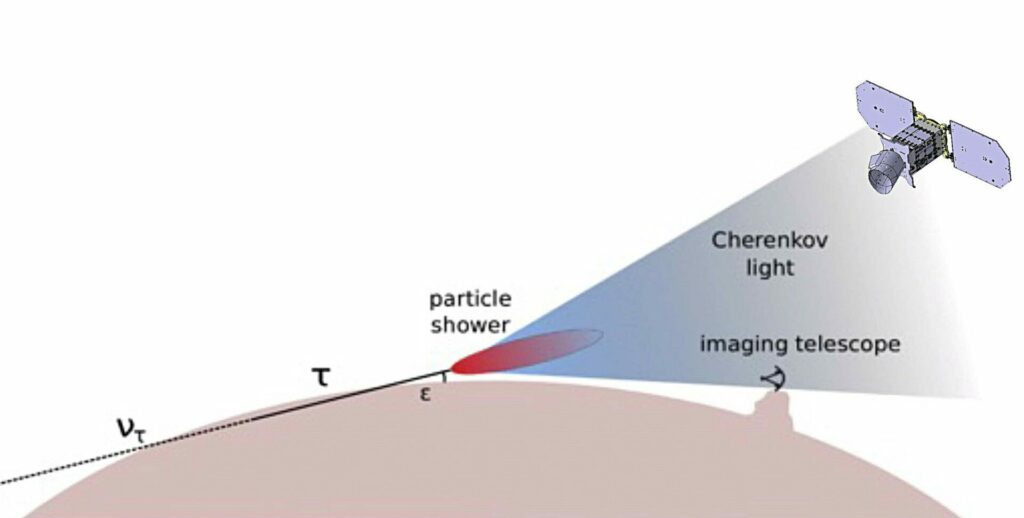L’Aquila, February 6th 2025 – Following the signing of an agreement between the Gran Sasso Tech Foundation (GST) and the Gran Sasso Science Institute (GSSI), activities have begun to validate and qualify for low-orbit satellite flight the hardware of the two scientific instruments of the NUSES mission.
The NUSES satellite is developed in collaboration with scientists of Italian and international research centers and is based on the innovative 2MF/NIMBUS architecture, developed by Thales Alenia Space Italy and managed by Gran Sasso Tech for scientific applications.
The two payloads operating onboard the NUSES satellite are named Terzina and Zirè. Terzina, a novel optical telescope concept for astrophysical neutrinos, combines Cherenkov light observation with the use of Silicon Photomultipliers (SiPM) for the detection of high-energy particle cascades in the atmosphere. Zirè measures cosmic electrons, protons, light nuclei and gamma-ray to study space weather phenomena and investigate correlations between electron and proton fluxes and seismic activity.

Gran Sasso Tech is leading the strategy and execution of technology and system qualification testing for the NUSES payloads, leveraging its privileged access to industrial laboratories and facilities and using protons and electrons accelerators to simulate the space environment. “Gran Sasso Tech is a partner of choice for the design, development and management of research missions in space,” stated GST’s president Fernando Ferroni, “and today we take an active role within this important collaboration that includes international partners such as GSSI, INFN, University of Geneva and University of Chicago. We will be happy to support also other universities and space agencies in developing cost-effective space science missions using the new-space paradigm. A great example of how a collaboration between academy and industry becomes effective.”
Roberto Alosio, Director of GSSI’s Astroparticle Physics Area and Principal Investigator of the NUSES collaboration, declared: “NUSES is an example of virtuous collaboration between universities and industry to explore new technologies and observational approaches for space-based experiments. Gran Sasso Tech has demonstrated to have the right expertise to support us in this ambitious project and we welcome them in our collaboration.”